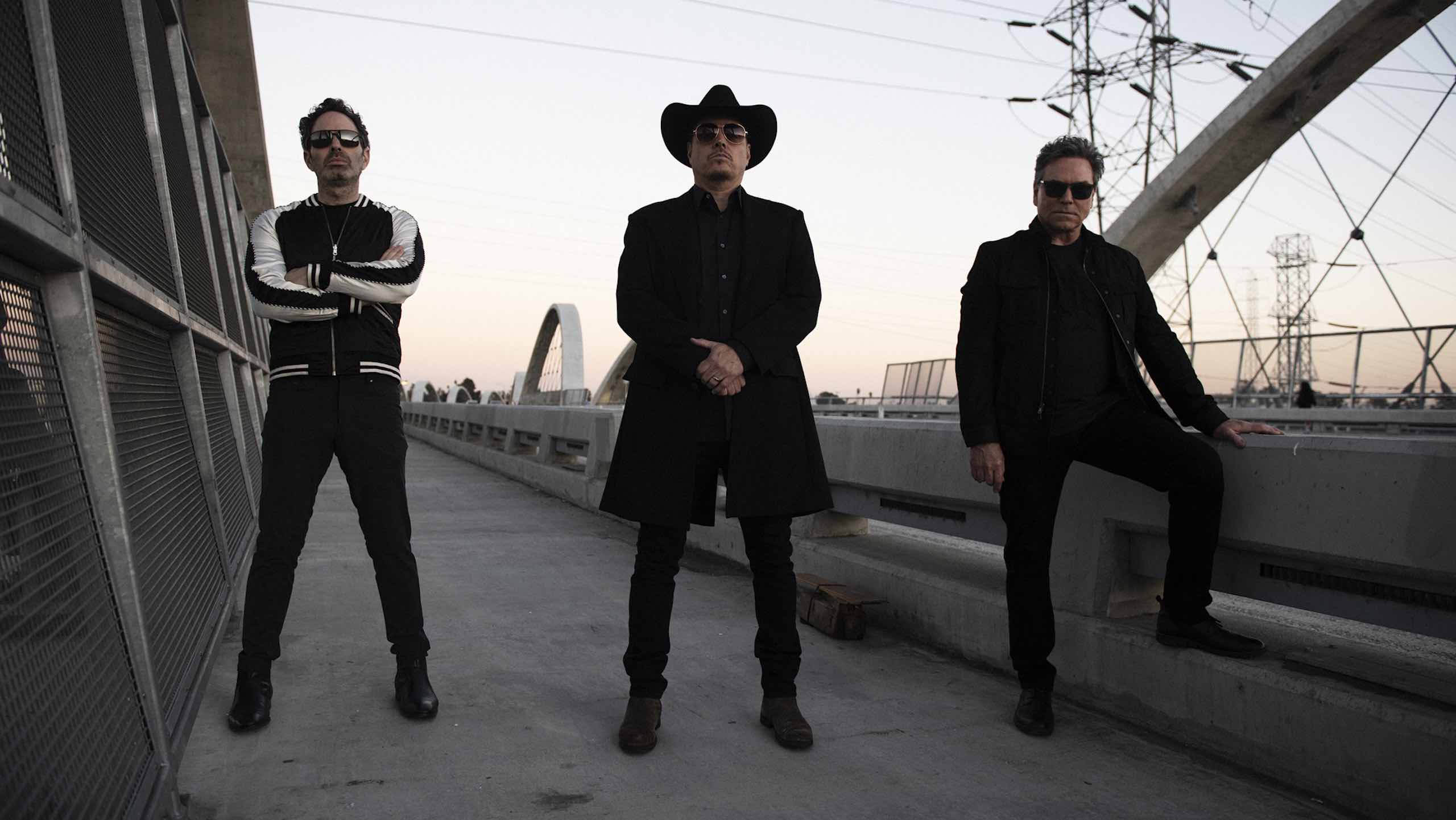It seems like most pop records originally take form in the wake of certain life events—the beginning of a new relationship, say, or the end of an old one. Yet LA dance trio ASHRR challenge that notion with their sophomore album Sunshine Low, a collection of electronic-based compositions leaning into funk, disco, and soul, all while adhering to indie-rock’s broad appeal. To hear band members Josh Charles, Ethan Allen, and Steven Davis put it, these 10 tracks (well, 14 on the bonus version) were inspired by quiet moments of introspection, whether it be driving on the highway after a writing session or getting lost in a nature documentary.
In many cases, there’s a more cerebral element to it—Allen, for example cites the meditations on materialist culture and contrasting images of non-materialist societies found in Ron Fricke’s 2011 ethnographic film Samsara, while Charles takes it one step further by referencing the philosophies of Phil Stutz found in his book The Tools and in Jonah Hill’s recent film profiling the therapist’s work. In both an aesthetic sense and an intellectual one, the exposure to all of these experiences and ideas pad out Sunshine Low in both its lyrical passages and the pensive instrumental patchwork behind it.
With the album out today via 20/20 Vision Recordings, read more about five particular non-musical influences the band referenced throughout the making of Sunshine Low below. You can stream the record here.
Driving on the LA freeway
Josh: During the making of this album, I often found myself driving from Ethan’s studio in Silverlake back to the West Side on the 10 Freeway, with the sun glaringly large and bright. Even with sunglasses, I had to lower the visor just to see the road. Subconsciously, I think that’s where the idea for [“Sun Song”] began. It’s like driving straight into the sun as it slowly sets over the ocean—beautiful, yet blinding. The sunshine played a significant role in capturing the feel of this album, symbolizing a journey toward connectivity, joy, and light, emerging from the darkness of the years before.
Stutz/Phil Stutz’s The Tools
Josh: After watching the movie Stutz on Netflix, I can honestly say it changed my life for the better. I’ve been through my own therapy sessions, and I believe there’s absolutely nothing wrong with trying to understand ourselves, improve, and confront our issues through therapy. Phil Stutz’s approach was incredibly refreshing and helpful, particularly in identifying what he calls “Part X”—that voice inside our heads that tells us we’re not good enough, that we don’t deserve success, or that we can’t achieve our goals. As a Type A person, I find it challenging to turn off the constant flow of thoughts, which can be both a strength in music and creativity but also a hindrance when seeking peace. The tools Stutz created have been instrumental in helping me find balance in life, and they definitely influenced the making of this album on both a musical and spiritual level—especially the song “Different Kind of Life.” The album’s lyrics carry a lot of emotional depth, yet it also makes you want to dance. To blend those elements feels like a real accomplishment.
Samsara
Ethan: The writing of this record found us in many modes of working and thinking. Some were solitary, or at a remove from our bandmates. Samsara is a non-verbal film, but its message is clear. The meditation I was experiencing working on my own or with limited physical presence from creative partners made me reflect on the Buddhist idea of the endless cycle of human beings not being satisfied with what they have and always seeking more. The film shows the intimate, small relationships people have, but it also zooms out to the societal level and demonstrates how we all put into play our lack of peace that’s always present when we only want more, instead being present and grateful. Working in my garage while making this record, thinking daily on what I truly have instead of what I don’t, made me able to do the good work.
Sapiens: A Brief History of Humankind by Yuval Noah Harari
Ethan: This book endeavors to show evolution—particularly our own, as a species. One of the biggest new events in human evolution has been our bending of natural selection with new occurrences in society, not the least of which was technology. Technology has totally changed my creativity. My favorite place to work lately has been out in the desert, where there’s a lot of space your mind has to fill up. I recently spent a run of days there, and cellphone inundation and the internet are secondary to whatever pursuit is in front of you. Technology now lets me work in a modern way—even in an austere place like the desert—that would’ve been only a dream a few years ago. I can’t wait for my next safari out there, and the ability to do it will count as evolution.
Serengeti
Steven: Most of our lyric writing is done on Zoom calls. The evening before a writing session, I watched a beautifully shot documentary on lions of the Serengeti in Africa. The morning of our writing session, the images of the documentary of the king of beasts lingered in my head. As we began our session, I recounted magnificent images of lions hidden in the grass, stealthily waiting and calculating how to advance on their prey at a watering hole, and so on. Early that morning I’d written some scratch lyrics to one of three songs we were to write that day, which I entitled “Lion.” My enthusiasm for the documentary may have been a little overwhelming, to which Ethan finally responded saying, “Well, let’s write to that idea.” That’s basically how the song “Lion” was born. Staying open and spontaneous is a critical and valuable mindset in the creative process. Sometimes a single word, title, scene, or idea can be the spark that sets to flame the fruition of a song.







